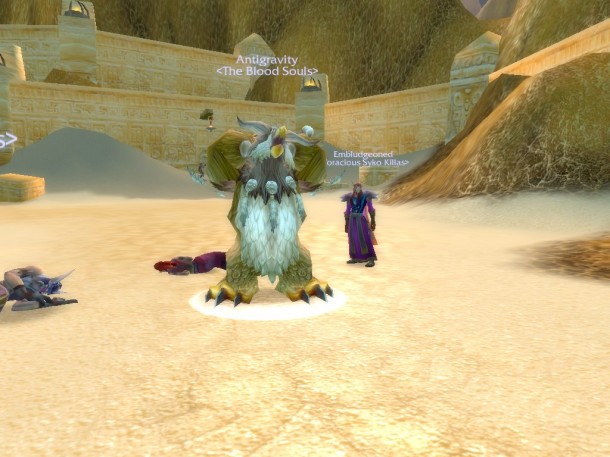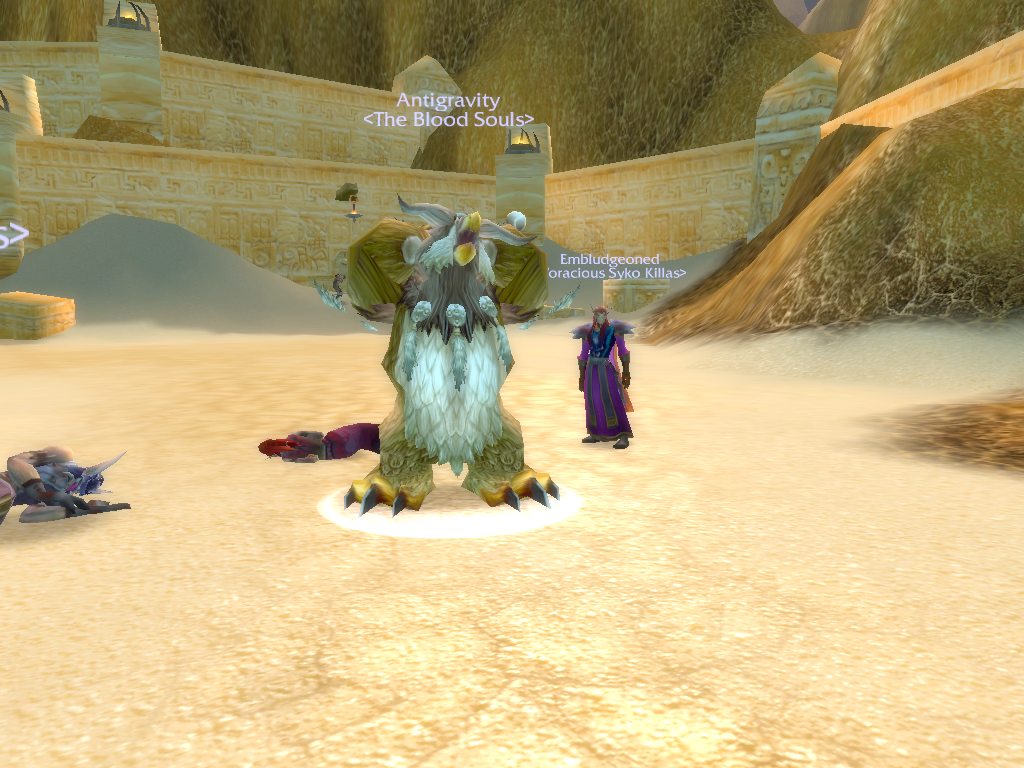
I think it’s safe to call it “group-speak”. This language we used was almost hieroglyphic in use. We utilized what the game offered us to work with. It was a shorthand for strategy in the five-player dungeons, it saved lives. Without it the chat box was nothing but a venue for whining, bragging, arguing, and excessive caps lock use.
“Ready?” someone would ask just before we began our conquest into the enemy-infested halls of the dungeon. “Hold on,” the healer would quickly type into the chat bar while munching away on a quick meal to replenish his heath and mana bar. After what feels like hours but was only mere seconds, the healer stands up, ready to go, without communicating his status to the rest of us. We wait a little longer until someone gets impatient and asks again, “ready?”. “Yep,” everyone answers in unison, but it shows up in order of connection quality on-screen.
“Pull,” we’d say just as a group of enemies, or “mobs”, were in the most tactical position to engage them. With competent groups the bruiser at the front, the tank, would be the one to pull, but in a lot of cases back then a misunderstanding of what pull meant was somehow widespread amongst all Hunters. Another seemingly widespread thing back then was the lack of quality internet connections, it felt like it was a requirement to have one of those poor souls in each group. These two problems caused less-than ideal results. The Hunter’s arrows wiz by, strikes one of the enemies in the group, effectively pulling them, and immediately following that dreaded moment of eye-rolling shock, the Hunter begins walking in place. As the group of baddies rushed toward the now four-person group, it was only a matter of time until someone uttered the phrase: “I think he d/ced,” and sure enough his character icon will darken, yes, he disconnected.
After a violent, outnumbered slaughter, or “wipe”, we re-group at the entrance of the dungeon, each of us burning holes into the greyed out icon of the player who lost connection to the server. It isn’t a a minute later and the Hunter comes back completely oblivious of what had just transpired. He asks, we explain. “Ready?”
Everything would go smoothly for a while until the healer would choose to say “oom” mid-battle, that means they’re out of mana, or, no more healing. They are the day-old bandages holding the group together, without them everything plummets into a frenzied chaos. The classes that couldn’t heal a dying plant drain their mana in some deranged confidence that they are capable of keeping the tank alive, while the classes that can’t, start toying with the idea of abandoning ship to avoid any kind of responsibilities. In short succession the group will be reduced to the Rogue standing in the corner, safe from his Vanish ability that makes him invisible to everyone but his teammates. It’s not until much later while sitting in the auction house selling off loot, the healer finds a mana potion in his inventory.
Breaking up is the hardest hurdle to overcome when participating in dungeons, everyone always has other things to do. In the event the group doesn’t fall apart out of frustration and patience, we give it another go. Morale is vital to World of Warcraft grouping, it can disappear in seconds. Seeing how we stuck together this far, the effort to pull the last few bundle of enemies feels like nothing. Most of the time those last few moments of combat before the final boss feel easier, because through the many mishaps you each feel strengthened.
Only through trial-and-error do you find the right speed to get the group working with efficiency. You have to run at each other until everything meshes and forms something solid. The patience required to do that is a rare trait in most players, many will leave after one failure.
WoW bosses are funny, sometimes they are unbelievably simple, and sometimes they are so annoyingly difficult it feels like a glitch. For the few times that happens, the group is done and there’s nothing you can do about it, often though, the players accompanying you know the fights and will usually be nice enough to jot out the strategy in chat. “Ready?” they ask, “Go,” we say, and the boss is eradicated quicker than the Hunter’s downtime.
Experiences like the random five-player dungeon are the essence of an MMO, however irritating they are. They take you from a few anonymous pieces of a dynamic archetypal role system and bring each of you together in beautiful unison. It’s not even a matter of getting to know each other past what the game wants, it’s recognizing the roles at play and finding out how to compensate for the group’s weaknesses. They start out rough, but they end in triumph.
“Good group.” “Again?”



1 Comment